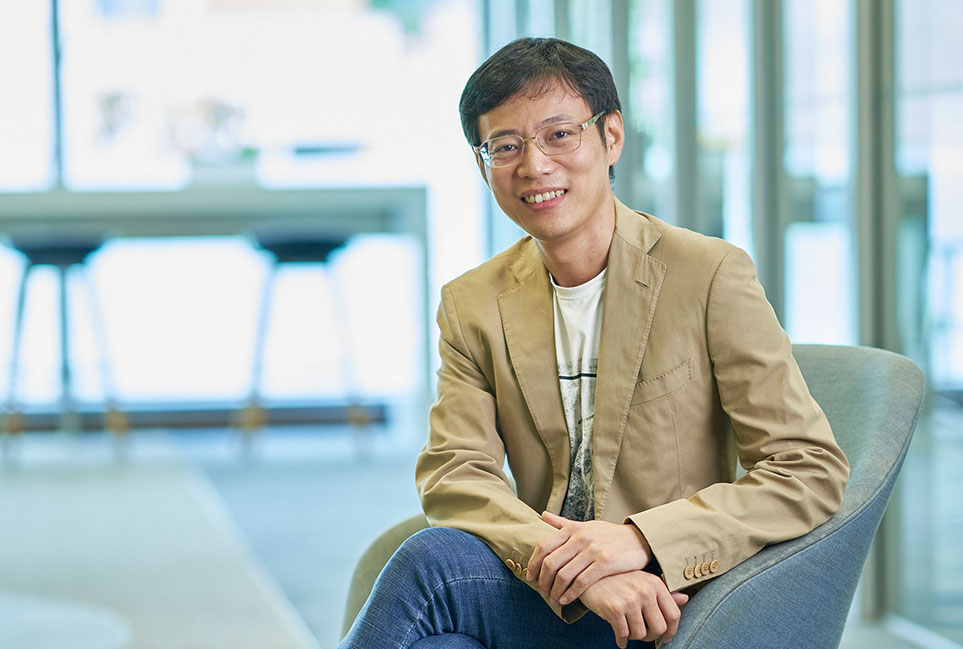
Complicated financial products such as derivatives, and the people who created and sold these products, have been demonised for their role in financial crises.
One such event was the Global Financial Crisis of 2007 and 2008, which had arisen from derivatives that enabled subprime mortgages to create a significant financial bubble.
After the bubble collapsed, heavy and widespread losses led to bankruptcies and a recession that entailed a great human cost.
Hu Jianfeng had been working for a global investment bank at the time, in a credit derivatives team, and he observed keenly what was happening in the financial markets.
“I was an analyst. I could see a full-scale crisis coming but I didn’t really have the whole picture,” he recalled. “I started thinking about where the problem came from and I was blaming the tools we had to price these financial instruments.”
With the crisis looming, he decided to quit in early 2008 before being made redundant. He then embarked on his PhD in Finance at the City University of New York with the goal of trying to understand better ways to design and trade financial products such as derivatives.
“If we can do it right, can we avoid financial crises such as 2008 and the others that had come before? I was trying to see if we could solve this problem by giving practitioners the right tools, or better pricing tools.”
An Associate Professor of Finance at the Lee Kong Chian School of Business since 2013, the 38-year-old has been researching derivatives trading and its impact on the marketplace, as well as on corporate decisions, since his PhD programme.
This has resulted in papers such as “Does option trading convey stock price information”, published in 2014 in the Journal of Financial Economics; and “Option listing and information asymmetry,” published in 2018 in the Review of Finance.
“If you Google CDS (credit default swap) or CDO (collateralised debt obligation), you will see a lot of blame for these products, for the volatility that caused the global financial crisis,” he said.
“If you read mainstream news headlines, these products are often presented as something ‘evil’, as what well-compensated bankers or hedge fund managers use to expropriate naive investors,” he said.
Associate Professor Hu’s research provides a counterpoint to the view that derivatives were “sophisticated tools for smart guys to exploit others, earn a big bonus and leave trouble behind.”
“There can be some positive spillover effects, there can be some positive welfare impact [from these products] coming from an improved information environment, from making the market more efficient, from the hedging benefits, and from the liquidity improvement.”
Associate Professor Hu, who teaches financial innovation and financial analytics to both undergraduate and postgraduate students at LKCSB, has been transitioning his research focus from asset pricing investment towards personal finance and financial literacy because he sees “a larger impact” there.
“Personal finance is the main field I'm working on now,” he said. “I think we need more research that can deliver impact to ordinary people, not just research for hedge fund managers and corporate CEOs.”
Among the many biases that regular people have about personal finance is that investing is for making money, or a way to strike it rich. Associate Professor Hu, who is married and is a father of three young children, is eager to dispel this misconception.
“The main function of investment is not to help you make more money,” he said. “It is to help you smooth your consumption path or to reduce uncertainty in the future. It’s not very intuitive, people don’t get it, and I aim to bridge what’s clear to economists with what we see in our daily life.”
With his research, which is also contributing towards financial products for micro entrepreneurs in developing countries, many of whom are underserved and unbanked, Associate Professor Hu is advocating not formal financial literacy education but products that can help “nudge” positive behaviours.
“It should be something like TikTok, where you just open the app and reveal your preferences by [how you use the app]. The AI learns and provides what's ‘good’ for you. If investment can be catered to investors this way, then it's possible to correct the ‘wrong’ biases.”